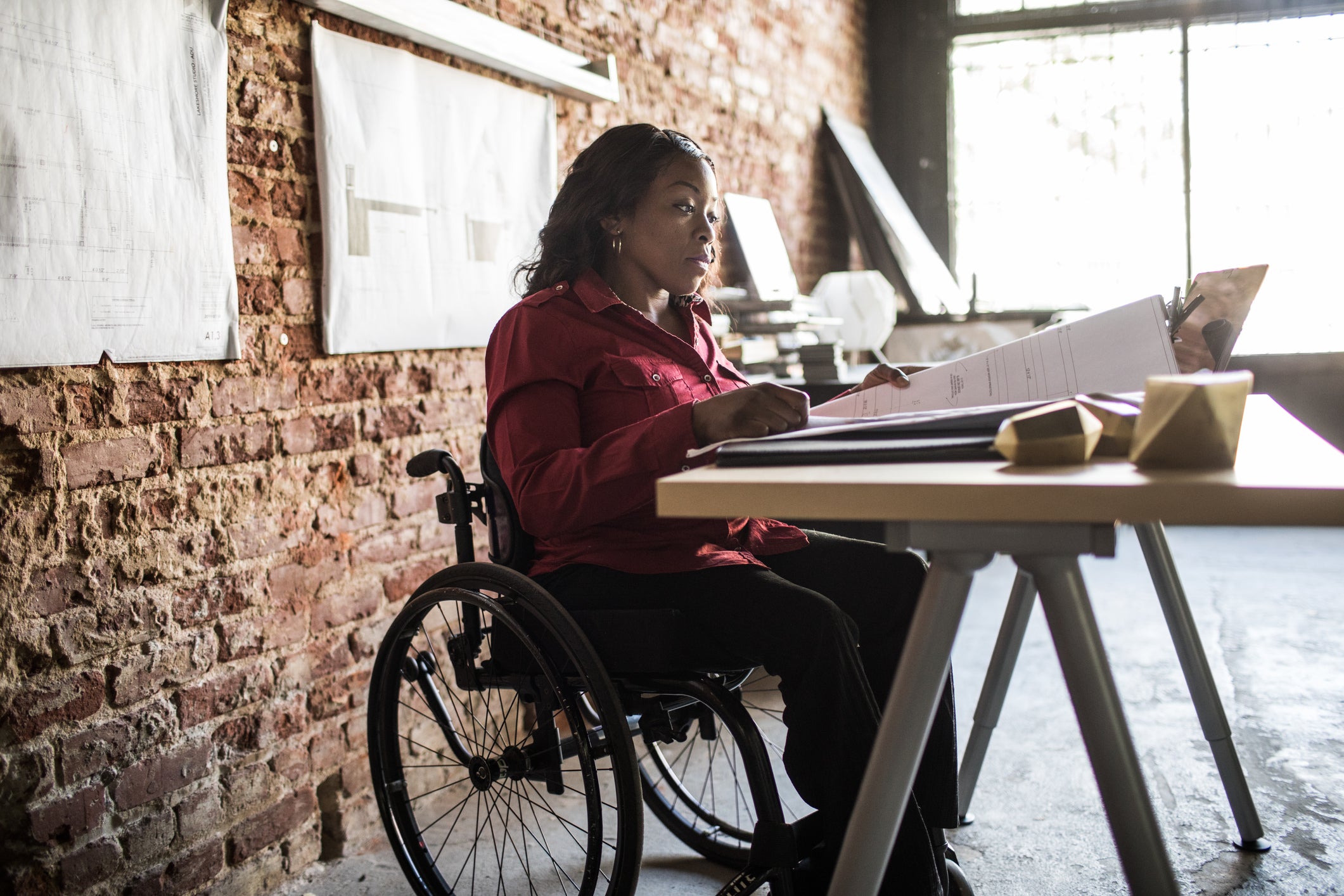
Last month marked the 30th anniversary of the American with Disabilities Act (ADA), which of course meant more attention given to disability justice and the voices of disabled people.
But now that the anniversary has passed and the news cycle has moved on, where does that leave disability justice and visibility? And more specifically, what does that mean for Black disabled people like myself?
The ADA was a start, but not an end; just as inclusion is a start, not an end.
Simply put, anything that entails ticking off a box or a criteria is not enough. Undoubtedly, winning civil rights protections and ensuring some infrastructural access for disabled people was an important victory. But as a Black disabled woman, I know the shortcomings of the legal system. And like most disabled people, I’m reminded every day of how far we have to go.
As we reflect on the past 30 years and honor those who fought for the ADA, we need to go further and completely overhaul the way society perceives and treats disabled people, starting with Black disabled people.
Black disabled people experience higher levels of police violence and the school-to-prison praxis in ways that are often overlooked. We also experience higher rates of unemployment than our white disabled counterparts and non-disabled Black counterparts.
And yet our Blackness is often seen as a distraction in the disability justice movement. And our concerns are rarely prioritized by other movements because people fail to see how our lives are impacted by white supremacy and ableist culture. But we can’t have our race or disability take a backseat because fragmenting our identity means we are not seen. And without truly seeing one another, liberation can’t happen.
But I know that a scarcity mindset will have us thinking that centering Black disabled people is at the expense of other rights to be found and won. This could not be any further from the truth. If we care to listen and learn, the experience of Black disabled people has a lot to teach us about real inclusion both within and outside disability justice as well as in other progressive movements such as the Movement for Black Lives.
The logic of centering the people closest to the problem as the most effective path towards lasting change is one reason why we must listen and follow the leadership of Black disabled people. But there is also another logic we must heed: the people who face intersectional oppression can raise the bar on what it means for all of us to be free and how we must go about creating not just spaces, but most importantly, visions that are truly inclusive of everyone in the full glory of who we are and what it will take for us to triumph over our varied struggles.
Progressive movements will only win lasting change and create a new world free from the trauma and harm of white supremacy, ableism, and other sentiments and structures of exclusion and hierarchy by putting long overdue focus on Black disabled people.
We can start by ceasing to render identities and issues that are not shared by the majority as afterthoughts, or worse, ignored all together. I would argue that our inclination to create hierarchies of value and worth is a learned behavior of white supremacy, and has us believing that we need to get over and win for ourselves because there will never be enough for all of us.
We’ve ingested this flawed mindset from living in a broken world. If we want it, there is more than enough for all of us. As a member of the Movement for Black Lives, it has been heartening to see the ways in which leaders are working to be accountable for the past harm of not centering the experience and leadership of Black disabled people.
This summer I’ve been working with a group of freedom fighters on the upcoming 2020 Black National Convention, being organized by the Movement for Black Lives and happening on August 28th. I’ve been able to witness firsthand how the Movement for Black Lives is going from treating us Black disabled people as afterthoughts to understanding and working towards building power with disabled people so all Black people can soar to our collective freedom.
Real inclusion is not about a check mark that says, “Yes, we have included disabled people or have made access and participation possible for disabled people.” Real inclusion is about bringing up disability and not waiting for a disabled person to do so. Real inclusion, when it’s done right, isn’t easy. Committing to real inclusion requires a reckoning with the erasure of disabled people across all social movements past and present.
Real inclusion is seeing each other fully like my grandmother did for me since the day I was born. She saw me not for who she was told I would be, but for who I was and who I became. She saw my disability not as a diagnosis, but as part of my identity and the culture and community that I cultivated as I got older.
It’s time to listen to Black disabled people. Our fight for disability justice cannot be divorced from other calls for justice. Now is the time for progressive movements to truly embrace disability justice. It’s time to see our demand for change as yet another beautiful wingspan towards our collective justice and freedom.
Vilissa K. Thompson is a Licensed Master Social Worker (LMSW) and disability rights consultant, writer, and activist from Winnsboro, SC. Vilissa is the Founder and CEO of Ramp Your Voice!, an organization focused on promoting self-advocacy and strengthening empowerment among disabled people.